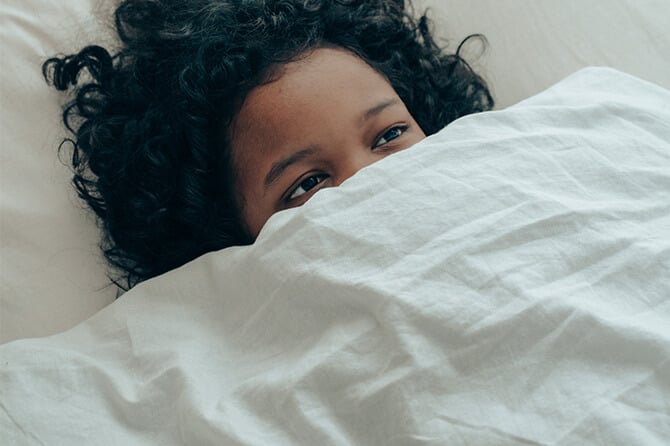
How to Sleep with Anxiety
Back to school, starting university or fighting the Sunday scaries? To name just a few of the things that might be playing on your mind this month. We've got some insights to help you understand anxiety, plus five ideas to finding better sleep with it.
If you’re one of the 8 million people in the UK currently living with some type of anxiety disorder, then you’ll know that living with anxiety can be extremely challenging. But if you add the exhaustion – not to mention the frustration – of sleepless nights to the mix, it can do serious damage to your overall wellbeing.
Back to school, off to university or fighting the Sunday scaries? These are just a few of the things that might be playing on your mind this month, and if you’re one of the 8 million people in the UK currently living with some type of anxiety disorder, then you’ll know that living with anxiety can be extremely challenging. But if you add the exhaustion – not to mention the frustration – of sleepless nights to the mix, it can do serious damage to your overall wellbeing.
The relationship between anxiety and sleep is a complex one. A vicious cycle of sorts, with the former exacerbating the latter, forming a pattern that can interfere with everything from your emotional wellbeing to your physical health – not to mention your work and social lives.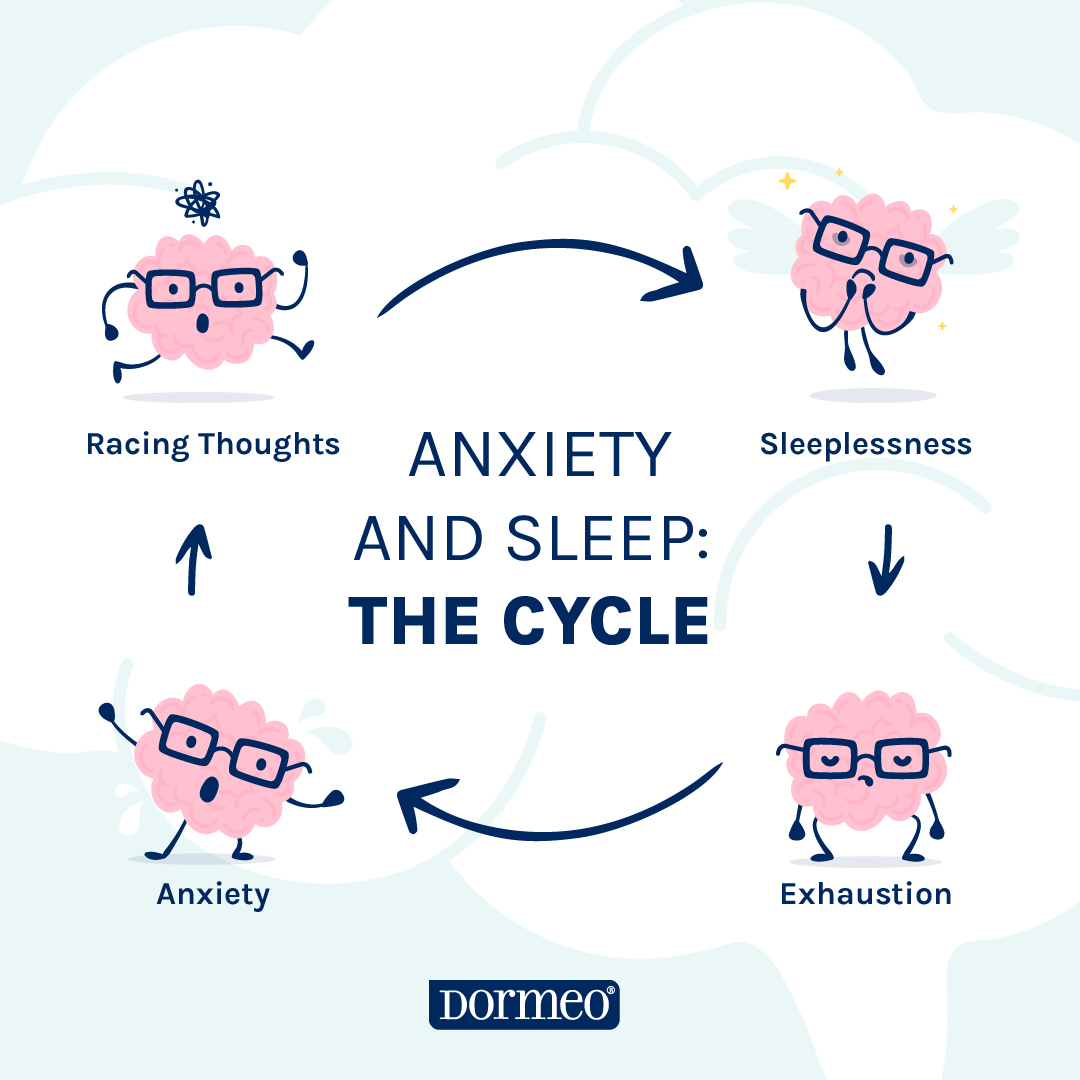
While there’s no one-size-fits-all fix to sleeping with anxiety, there are several ways of addressing the problem and improving your chances of snagging some restful, revitalizing sleep.
As we’ll explore in more depth later, these include:
- Yoga
- Journaling
- Essential oils
- Soothing music
- Maintaining a sleep routine
Anxiety and Sleep: Explaining the Link
As you can imagine, there have been numerous studies into sleep and anxiety disorders, and while people’s experiences differ – based on factors including age, diet, and lifestyle – scientists have identified several core similarities amongst those grappling anxiety and sleep deprivation. These include:
- An impact on mood
- Difficulty concentrating
- Reduced reaction times
- Lethargy (that sluggish, groggy feeling)
But how does anxiety rob you of sleep?
Well, it pertains to your body’s instincts, specifically – you guessed it – our so-called fight-or-flight response. (Which is usually an ally.)
Essentially, when your amygdala – the bit of your brain that deals with emotions – senses danger, it triggers the release of specific hormones (our old friends adrenaline and cortisol) to kick you into a heightened state of readiness; helping you handle whatever danger you’re facing.
However, if you live with an anxiety disorder, your brain struggles to regulate these hormones, placing you in a constant state of readiness. (Think of it like a switch being stuck in the ‘on’ position.)
And then comes the vicious cycle we mentioned; as anxiety impacts your sleep, and sleeplessness causes anxiety.
But you’re not powerless. And there are ways to fight back. Let’s explore a few now, shall we?
FYI: we’re sleep experts, but we’re not doctors. As such, our advice is concerned with how to get better sleep with anxiety and not as a treatment for anxiety.
How to Sleep Better with Anxiety
Yoga
Ask any yogi, and they’ll tell you: pre-bed yoga is a fantastic way of alleviating the stresses and strains of the day and can significantly boost your chances of getting some restful sleep.
In fact, amongst the many, many benefits of yoga, maintaining a consistent yoga practice – even just ten minutes in a basic pose before bed – can actively lower the amount of cortisol in your bloodstream.
Yoga is often recommended as a natural remedy for anxiety as it serves as the literal opposite of the fight-or-flight response that’s keeping you awake.
Journaling
Often known as a ‘brain dump’; spending some time writing in a journal before you settle down to sleep is a low-energy, high-reward method of getting better sleep if you struggle with anxiety.
Writing is powerful. It allows us to see our thoughts. As such, it can remove their power over us. Sounds lofty, but it’s true. When we jot down our anxious thoughts, they often seem much smaller than when they were rattling around our brains.
That said, it’s important not to overthink the process, as doing so can trigger the exact type of stress you’re trying to relieve. It’s worth:
- Setting a time-limit (ten minutes should do the trick)
- Journaling at the same time each night
- Writing in list-form
- Using a specific notebook (no phones, as blue-light harms sleep)
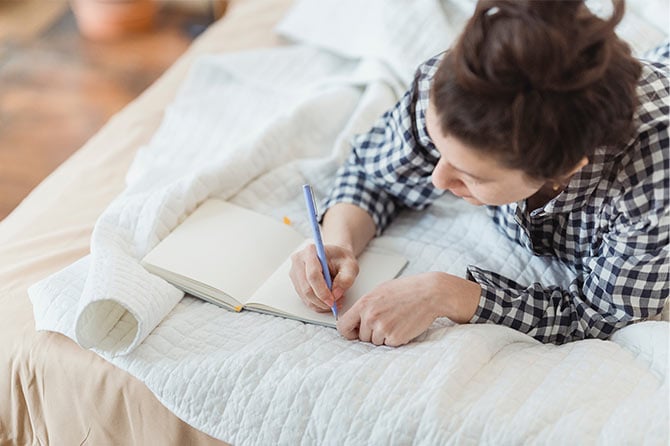
Soothing Music
Music is a powerful ally for getting better quality sleep and alleviating anxiety. Earlier, we noted that anxiety floods us with cortisol. Well, listening to music before bed can address that chemical imbalance directly by triggering the release of dopamine – the hormone responsible for happiness and relaxation.
And that’s not all. Listening to music before bed can regulate your breathing, lower your heart rate, and, depending on your choice of music, improve your mood through positive association.
To help you out, we’ve curated our own sleep playlist. With a pick of songs coming in, by scientific recommendation, at 60-80bpm to ease you into a gentle lull. Give it a try.
Essential Oils
Even if you’ve never heard the phrase ‘essential oils’ you’ve likely already used them in some capacity.
Often used in aromatherapy, essential oils – so-called because they capture the ‘essence’ of specific plants and herbs – can be inhaled by using diffusers or rubbed directly onto your skin.
Whichever method you prefer, using essential oils before bed can help lessen some of the anxiety that’s affecting your sleep by stimulating specific areas of your limbic system (the part of the brain linked to behavioural and emotional responses).
And so, essential oils can help to regulate your breathing, heart rate, and even your blood pressure; each of which is elevated when you’re stuck in an anxiety-induced fight-or-flight mode. Common essential oils include:
- Lavender
- Bergamot
- Chamomile
- Cedarwood
- Clary Sage Oil
It’s also worth noting that some essential oils can trigger adverse reactions for people who are pregnant or living with certain medical conditions. They can also be harmful to our pets. So be sure to do your research first.
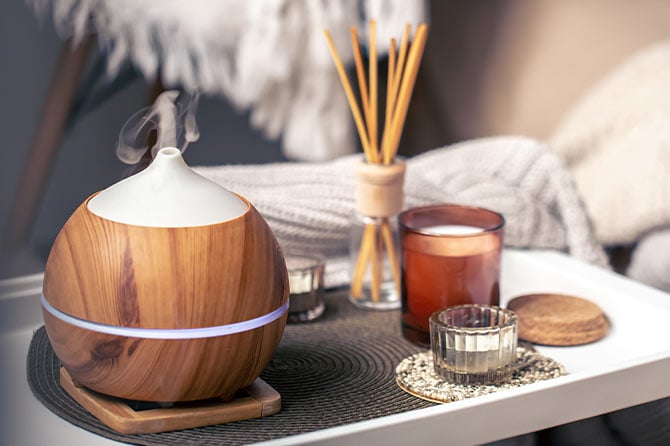
Maintain a Sleep Routine
As humans, we thrive on routine. Whether it’s the route we take to work or the order we complete our morning tasks (coffee first, obviously), having a routine in place minimises anxiety by signalling to our brains what to expect in a given situation.
And that counts double for sleep routines.
By maintaining a sleep routine – no matter how straightforward – signals to your brain that it’s time to wind down. It could be some light yoga, sinking into a novel, or sipping a herbal tea; whatever works for you.
The important thing is the repetition; our brains are soothed and satisfied by it, so if you’re struggling with anxiety-related sleep issues, it’s worth planning (and sticking to) a workable sleep routine.
Sleeping with anxiety can be challenging, but it is possible. Whether you adopt one or all of our tips (or even tweak them to suit you), we hope you get some well-deserved rest.







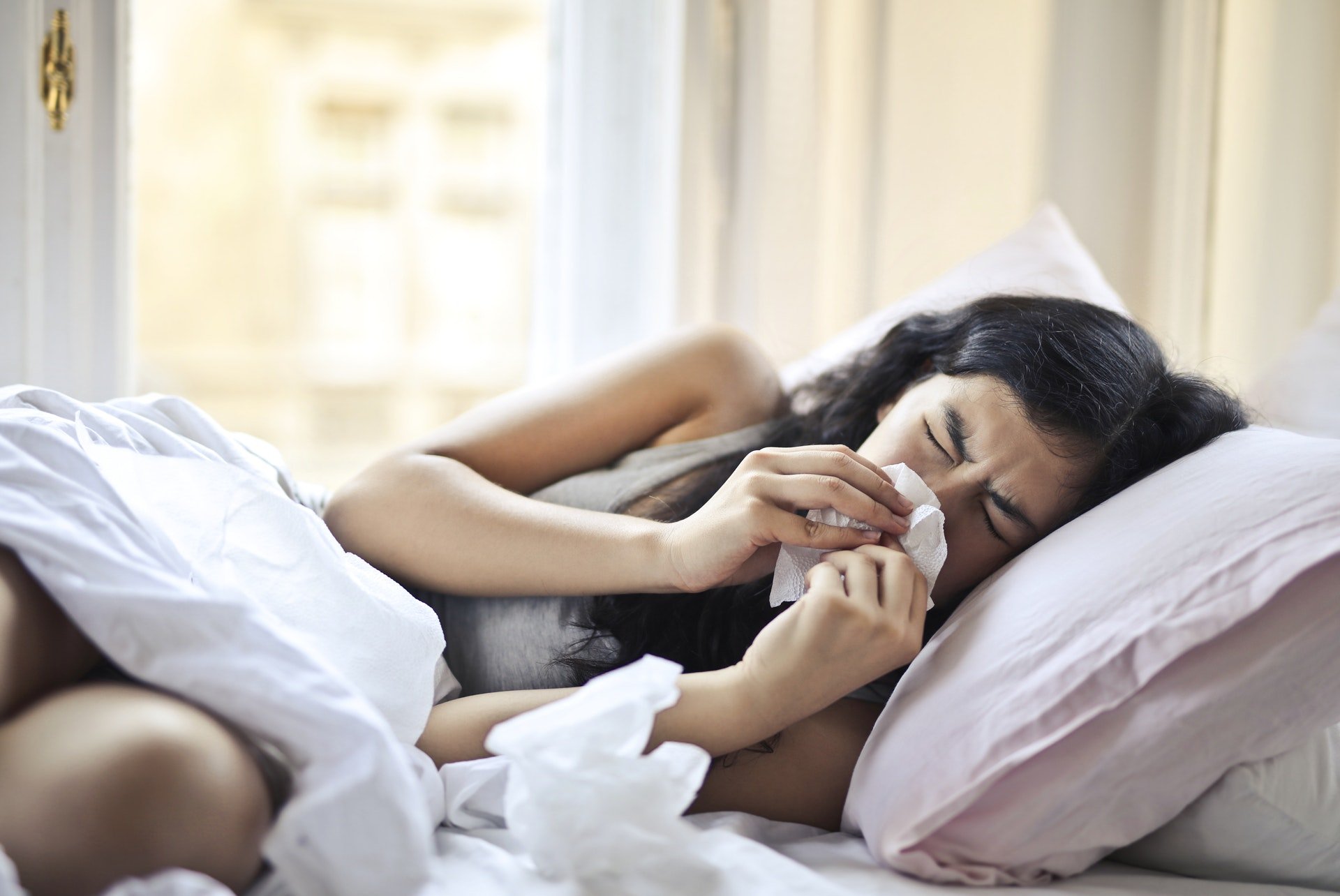

Leave a Reply